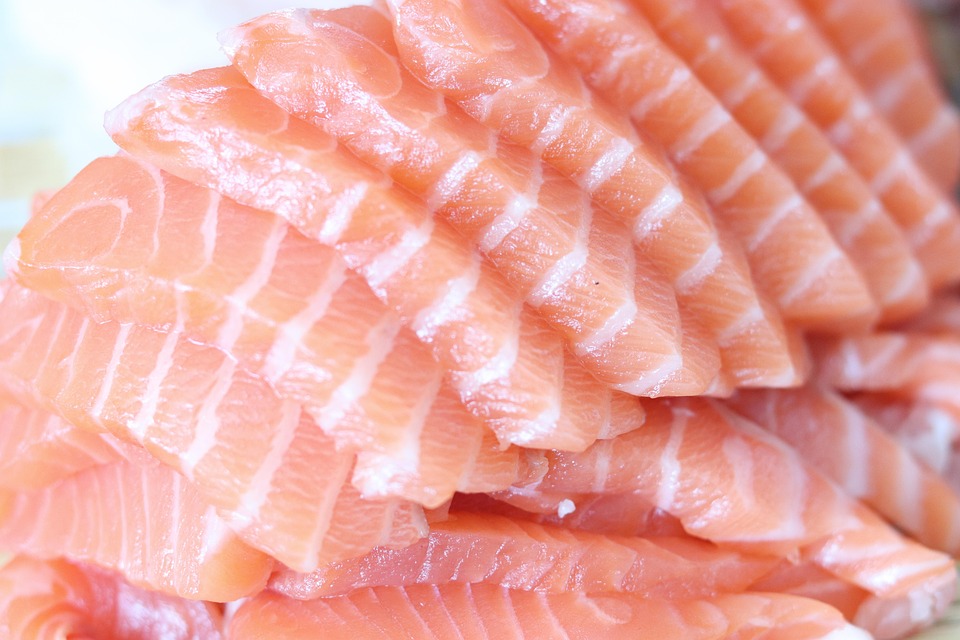Midday slump meets your favorite mug of coffee. As the caffeine buzz fades, a familiar fatigue sets in, making you wonder if there’s more to boosting your energy than the usual fixes. Have you considered how your diet shapes not just your energy levels but also your overall vitality—including testosterone levels?
Tuna, often sidelined as just another source of protein, could be a powerful ally in your quest for healthier testosterone levels. Here’s why incorporating tuna into your meals might be a smart move.
Contents
1. Rich in Omega-3 Fatty Acids
Tuna is loaded with omega-3 fatty acids, which are more than just trendy dietary components. These essential fats play a vital role in reducing inflammation and supporting heart health. More importantly, they also contribute to testosterone production.
A study published in the Journal of Endocrinology emphasized that omega-3 fatty acids can improve hormone levels by decreasing inflammation in the body. Researchers found that inflammation is linked to lower testosterone levels, meaning that incorporating anti-inflammatory foods, like tuna, can indirectly support testosterone synthesis (Harris, 2022).
The Mechanism:
Omega-3 acids, such as those found in tuna, can help improve the signaling pathways in the testes where testosterone production takes place. Think of it as ensuring the power lines are clear of debris to deliver maximum energy to your home.
Limitations to Consider: While omega-3s are beneficial, it’s essential to balance them with omega-6 fatty acids. High omega-6 consumption can lead to increased inflammation, which could negate the positive effects of omega-3s.
2. High Protein Content
Tuna is a protein powerhouse, boasting a high protein content per serving. This quality can’t be overlooked when discussing testosterone levels.
Studies, including one in the Journal of Nutrition, show that high-protein diets tend to be linked with improved testosterone levels, particularly when they include lean protein sources like fish (Burd et al., 2020). Protein plays a key role in hormone synthesis, muscle maintenance, and overall metabolic health.
An Example:
Imagine an athlete recovering after intense training. Their muscles need protein to repair and grow, and so does their hormonal balance. Enriching their diet with tuna could support both aspects.
Considerations: While protein is essential, an excessively high intake may lead the body to convert protein to glucose, potentially impeding optimal hormone levels. Moderation is key.
3. Packed with Vitamin D
Remarkably, tuna is also a source of vitamin D, a nutrient crucial for testosterone production. Many people are unaware that vitamin D deficiency is linked to low testosterone levels.
A review published in the Journal of Clinical Endocrinology and Metabolism found that men with adequate levels of vitamin D had higher testosterone levels than those who were deficient (Pludowski et al., 2019).
Why It Matters:
Vitamin D acts like a hormone itself and plays various roles in physical health, including the optimization of hormone levels. Including food sources rich in vitamin D, such as tuna, could be an effective strategy for improving testosterone levels, especially in individuals who may be at risk for deficiency.
What to Watch: Supplementing with vitamin D may sometimes be necessary, especially for those who have limited sunlight exposure. Tuna shouldn’t be relied upon solely for vitamin D intake.
4. Selenium Content
Tuna is also high in selenium, a trace mineral that has been shown to have a positive influence on testosterone production. Selenium is vital for the health of various bodily processes, including those that control hormone levels.
Research has shown that selenium deficiency can lead to decreased testosterone levels, whereas adequate intake supports optimal hormonal function (Rayman, 2000). By including tuna in your diet, you can ensure you’re meeting your selenium needs.
Real-life Scenario:
Consider a busy professional whose diet lacks variety. By adding tuna a few times a week, they not only enjoy a delicious meal but also support their body’s hormonal health, all while providing essential nutrients for overall well-being.
Caveats: Too much selenium can be harmful, leading to toxicity that can result in various health issues. Always aim for balance and moderation.
5. Affordable and Accessible Source of Nutrients
Tuna is not only nutritious but also budget-friendly and widely available. Incorporating nutrient-dense foods into your diet shouldn’t break the bank. In fact, canned tuna offers an economical way to boost your protein and nutrient intake.
Accessibility contributes to how regularly you can include beneficial foods in your diet. The more you enjoy accessible healthy options, the more likely they become staples in your meals.
A Quick Personal Reflection: Think about the ease of tossing some tuna into a salad or pasta dish. It’s not just about health; it’s also about convenience and taste.
Limitations:
While canned tuna is convenient, it’s important to consider potential mercury content—especially for certain types, like albacore. Moderation is crucial, as high mercury levels can lead to adverse health effects.
FAQs
1. How often should I eat tuna to boost testosterone levels?
Incorporating tuna into your diet 2-3 times a week is generally recommended, balancing it with a variety of other protein sources. However, be cautious of mercury levels, especially in certain types of tuna.
2. Are there other foods that boost testosterone like tuna?
Yes, foods rich in zinc (like oysters), vitamin D (like egg yolks), and healthy fats (like avocados and walnuts) can also help support testosterone levels naturally.
3. Can I get enough omega-3s from tuna alone?
While tuna is a great source of omega-3s, consider also including other sources like flaxseeds, walnuts, or fatty fish like salmon for a well-rounded intake.
4. Should I consider supplements for vitamin D or omega-3?
Consulting with a healthcare provider is ideal to assess whether supplementation is necessary based on individual dietary habits and health status.
Conclusion
Incorporating tuna into your meals not only tantalizes the taste buds but could also support testosterone levels through omega-3 fatty acids, protein, vitamin D, and selenium.
However, like any dietary change, moderation and variety play crucial roles in ensuring you receive a balanced nutrient profile without adverse effects. The key lies in being mindful of your food choices and how they interact with your body’s needs. As you plan your meals, consider how tuna could fit into a broader strategy for enhancing your vitality.
References
- Harris, W. S. (2022). Omega-3 fatty acids and inflammation: Role in reducing chronic disease risk. Journal of Endocrinology. journal-of-endocrinology
- Burd, N. A., et al. (2020). Protein intake and muscle health: An overview. Journal of Nutrition. journal-of-nutrition
- Pludowski, P., et al. (2019). Vitamin D supplementation guidelines. Journal of Clinical Endocrinology and Metabolism. journal-of-clinical-endocrinology
- Rayman, M. P. (2000). The importance of selenium to human health. The Lancet. lancet
Get Your FREE Natural Health Guide!
Subscribe now and receive our exclusive ebook packed with natural health tips, practical wellness advice, and easy lifestyle changes, delivered straight to your inbox.






